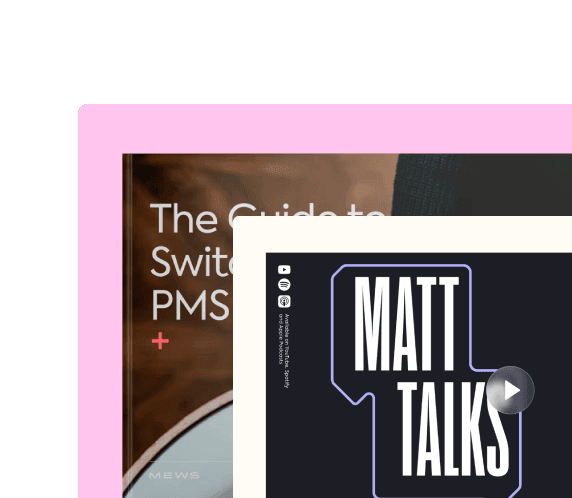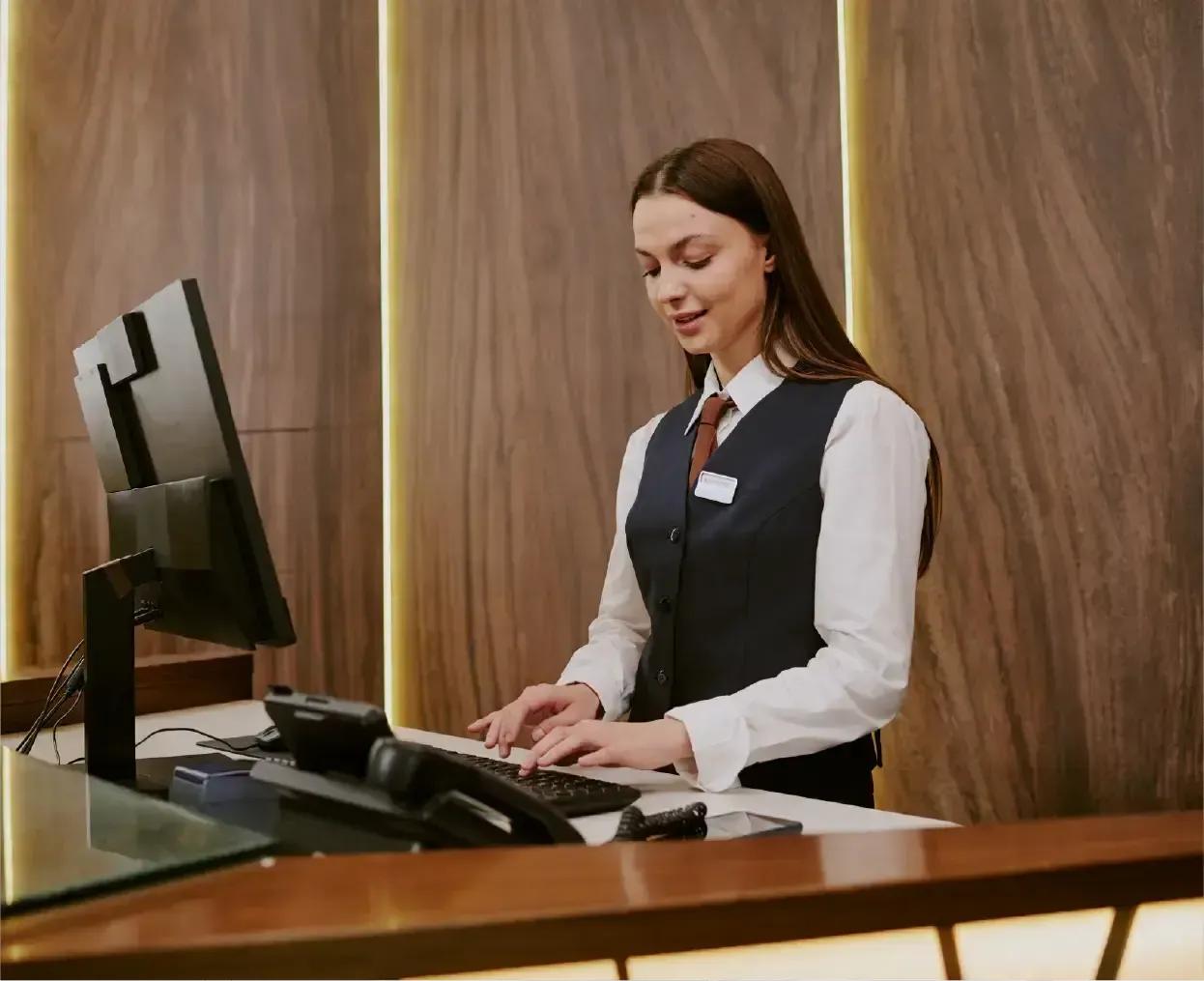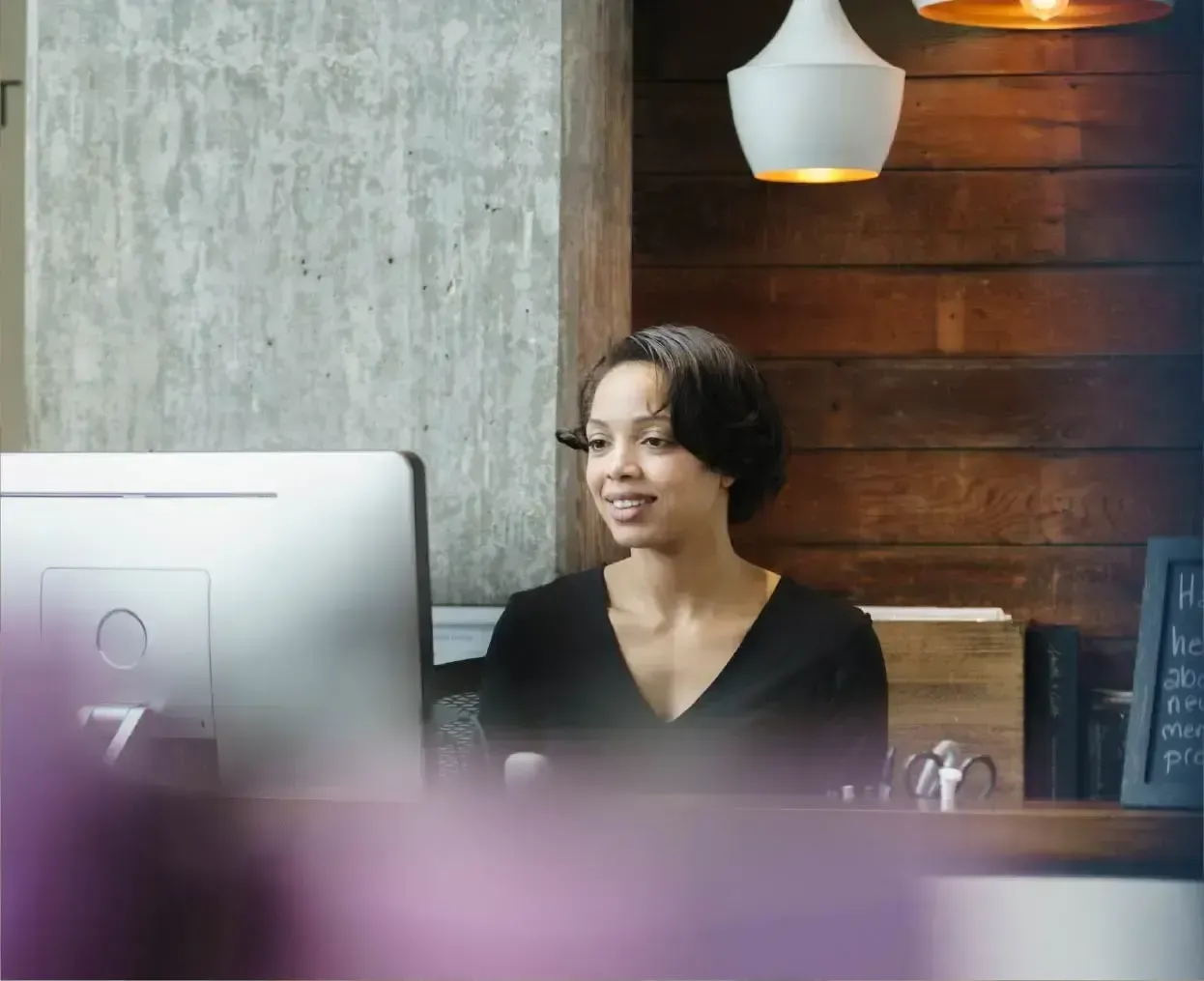When discussing the functions of a property management system (PMS), there are several aspects to consider. A reliable PMS is just as critical as having capable personnel to oversee your operations. Ideally, you'll want one that can streamline every step of your workflow, enhancing team efficiency and driving revenue. By understanding the necessary functions, you can leverage technology to your advantage.
A PMS plays a vital role in managing reservations, check-ins, housekeeping operations, and optimizing revenue-generating activities and room rates. It helps minimize the time between room readiness and guest check-in, ensuring a smooth operational flow. Let's explore some key functions to guide you through selecting the right PMS for your business.
8 functions to look for in a property management system
If you're unsure what a PMS is and what it does, you may not understand why you need one or what functionalities it offers. A property management system is software designed to help organize, execute and track daily operations in a hospitality business. It facilitates managing reservations, check-ins and check-outs, guest information tracking, price control, availability management, and provides analytics to monitor and improve performance.
While a property management system offers numerous functions, some are essential for effective operations. Let's explore these essential features so you'll know what to prioritize when selecting a PMS or considering a switch to a new one.
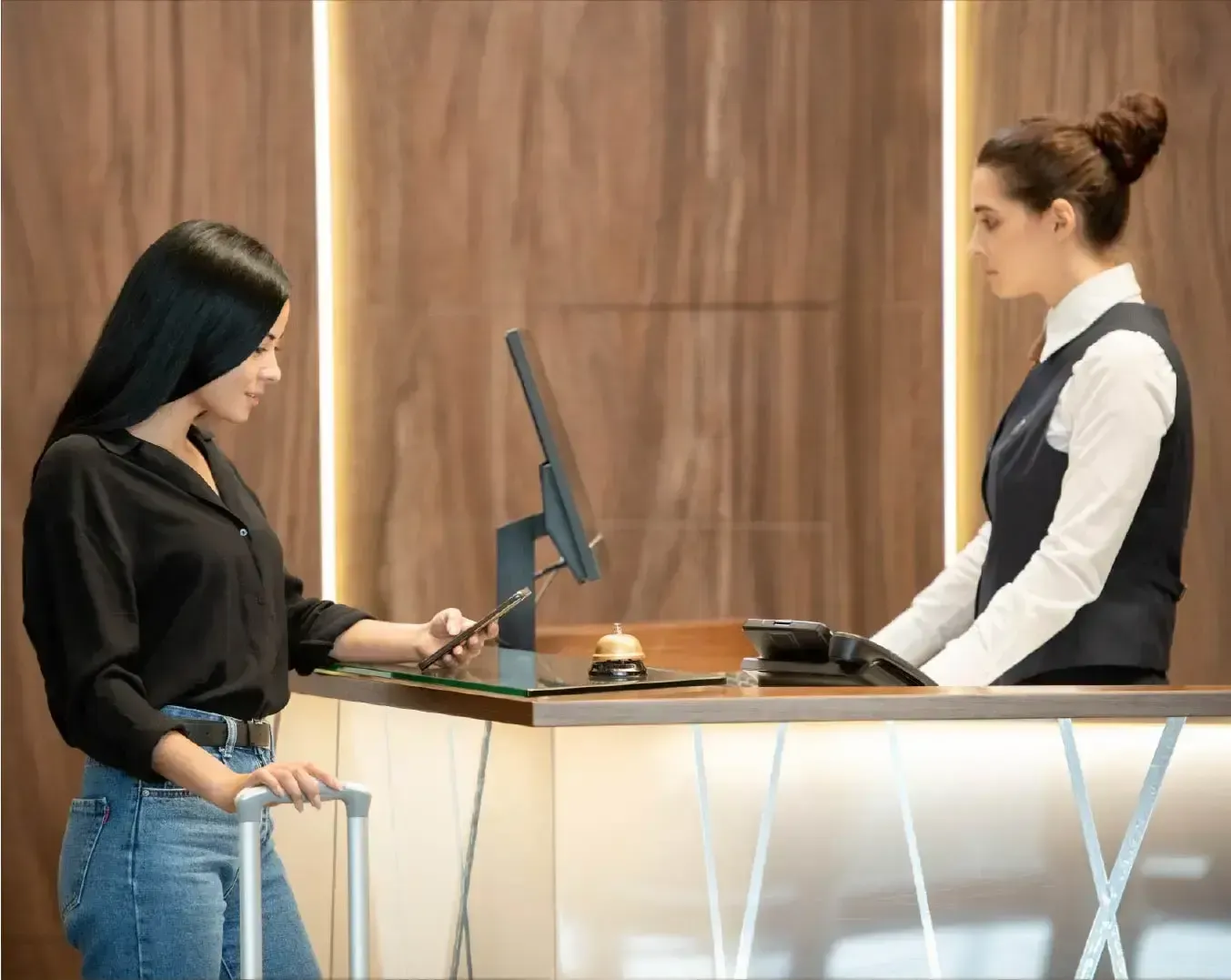
1. Reservation management
Reservation management is one of the key functions of a PMS because avoiding overbooking is essential for maintaining your hotel’s reputation. You should be able to easily manage direct online bookings, track reservation details and any special requests, and check availability for specific room types.
When choosing a PMS, look for one that allows you to automate workflows and manage reservations from mobile or any device, as modern hoteliers are always on the go. Ensure that reservations are clearly visible and searchable based on different criteria to avoid overlooking any details. For group reservations, ensure that the system can manage large groups, including room blocks, sending booking links, and handling billing information effectively.
2. Rate management
Rate management is another essential function of a PMS because it allows you to unlock the key to maximizing revenue. You should be able to optimize inventory through automated rate management, adjust rates across properties, and apply rate mixing based on your property's and customers' needs. Customized rates help attract your target customers.
Look for a PMS that allows you to adjust pricing based on various factors – dynamic pricing, age-based pricing, space pricing, and daily pricing. The more flexibility the system offers for automating rate management processes, the better it will suit your needs.
3. Revenue management
Revenue management is arguably one of the most important features because there’s no business without the ability to drive revenue. A good PMS should make revenue management easy by allowing you to drive direct bookings and boost profitability by lowering acquisition costs. Look for reporting functionalities that enable you to easily view and analyze whether your strategy is working.
With the ability to visualize and analyze what's working and what's not, you can quickly and easily adjust and update your revenue strategy as needed, including managing group rates, package deals, and custom rates.
4. Unlock your property’s potential
Your property has so much potential, so it's a good idea to find a tool that allows you to maximize communal spacesand other areas by hours, days, or months. The more you can drive revenue from different sources, the less dependent you will be on room revenue alone.
With the right PMS, you should be able to manage these various spaces in one place. This includes day-use rooms, parking spaces, co-working spaces rented by the day, hour, or month, long-term stays, and membership guests who use the facilities without staying on site. The better you can manage these diverse revenue sources, the easier it will be to tap into these additional streams of revenue.
5. Task efficiency
Task efficiencyand management are critical across all sectors of a hotel, including housekeeping, the front desk, and maintenance departments. The more efficient everyone is, and the better the systems are for keeping track of tasks, the better your hotel will run, and this is where a PMS can come in handy. It can streamline communication and task tracking to ensure nothing slips through the cracks.
Your ideal PMS should make cross-departmental communication easy, allowing the front desk to communicate seamlessly with different departments to handle service requests and inform them of any changes in arrival or departure times. With a built-in app, your staff can carry the PMS with them on the go, staying informed of room status updates, maintenance requests, and getting a real-time view of their workload.
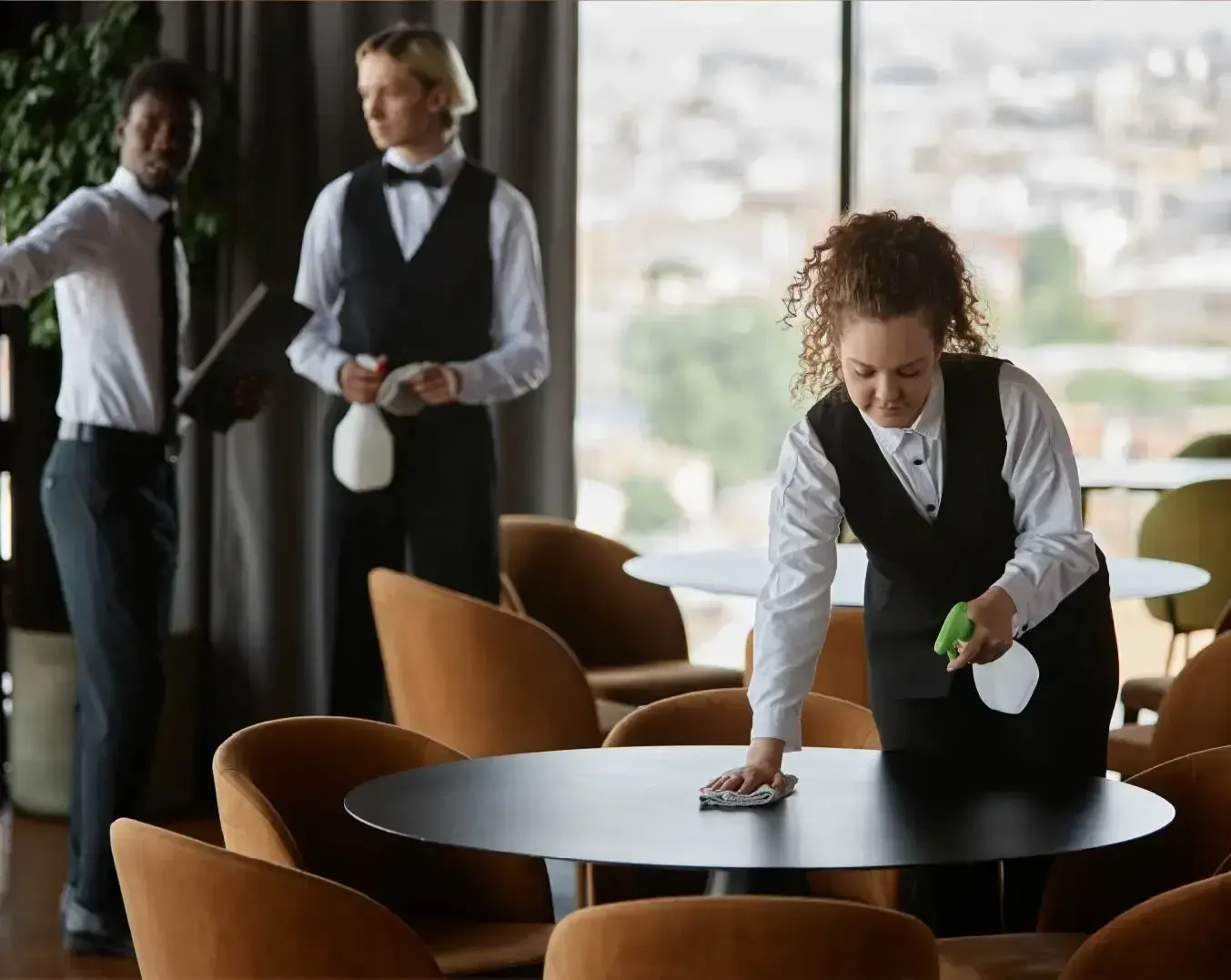
6. Data and reporting
Find a tool that simplifies data management and reporting and offers the ability to customize reports and access real-time data. This allows you to track your hotel's performance and make informed decisions based on historical and current data. Ensure the system allows you to set target metrics so you can monitor progress toward your business goals.
7. Guest services
Guests are increasingly digitally savvy, which is why it's important to offer guest services such as digital kiosks, virtual concierge, online check-in, and mobile payments to provide a seamless and unique hotel experience. When choosing software, ensure it includes digital guest services as a key function to enhance guest satisfaction and convenience.
8. Front desk operations
Because hotel productivity is at the heart of profitability, it's important to have software that helps make front desk operations as smooth as possible. Technology can automate time-consuming processes, allowing the front desk to focus on guest satisfaction. A PMS should enable the front desk to easily manage rate changes, handle special requests, and prioritize tasks that drive revenue.
Conclusion
We've discussed the functions of a property management system and what's involved in making the right decision for managing your property. By optimizing every aspect of your operations with a PMS, you can boost your confidence and have the digital infrastructure in place to enhance your bottom line and drive revenue.
If you're still unsure about what's best for you, we recommend checking out our guide to switching your PMS. This will help you feel confident and prepared to make the choice that will transform your business.
Download The Guide to Switching Your PMS
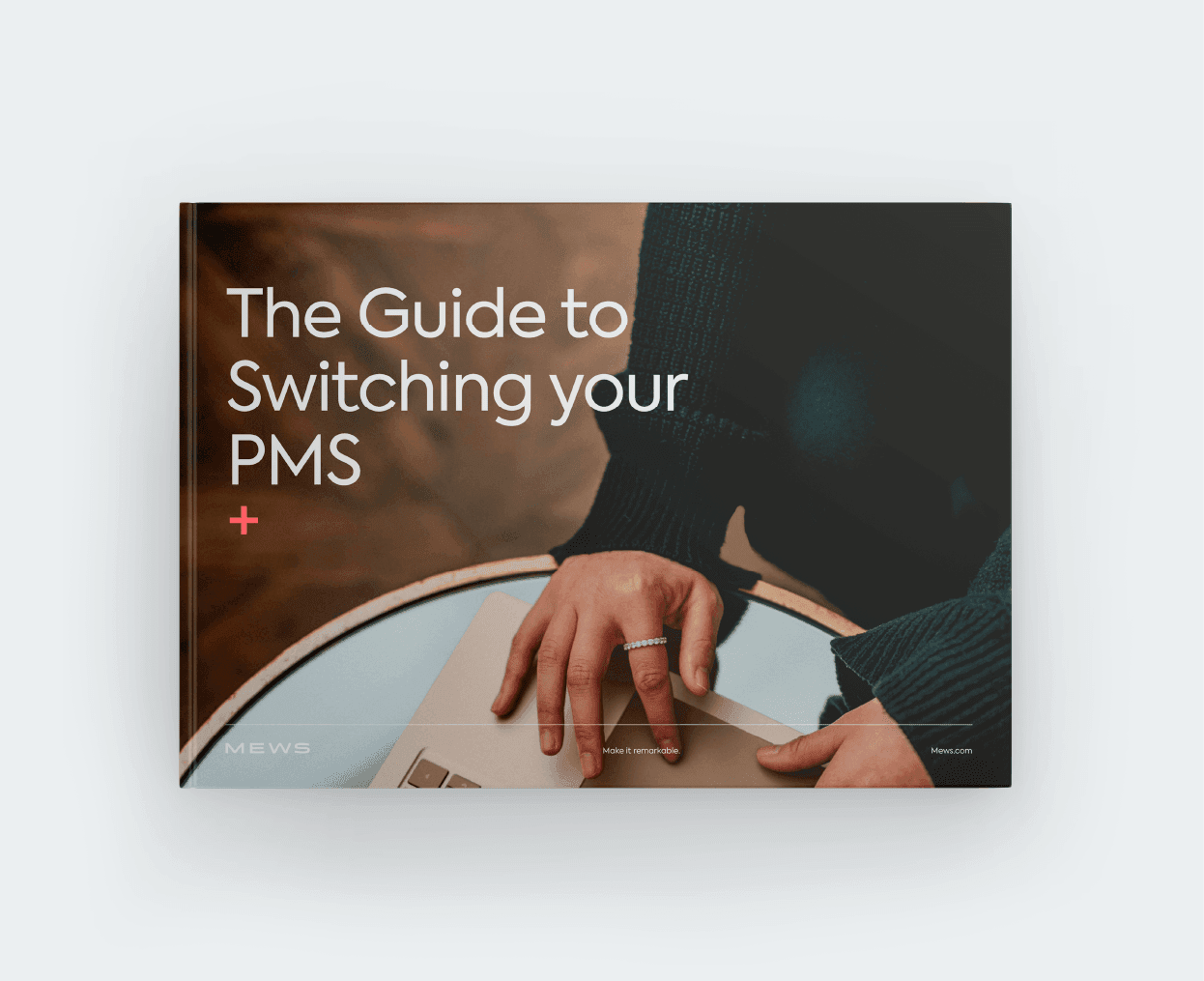
Written by

Eva Lacalle
Eva a plus d’une décennie d’expérience internationale dans le marketing, le marketing numérique, la communication et l’événementiel. Lorsqu’elle ne travaille pas, elle aime surfer, danser ou explorer le monde.




